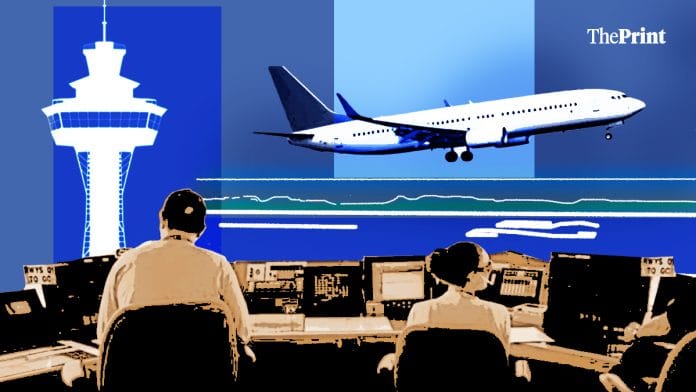New Delhi: As many as 2,458 commercial flights were either rescheduled or cancelled across India in the first six months of 2025 on account of “regulatory issues and geopolitical issues,” the Modi government told Parliament Thursday. Though it did not list specific reasons.
The period in question included flights either rescheduled or cancelled during as well as in the immediate aftermath of Operation Sindoor and regulatory inspections following the crash of AI-171 in Ahmedabad.
The data was provided by Minister of State (MoS) for Civil Aviation, Murlidhar Mohol, in response to an unstarred question by Congress MPs K.C. Venugopal, Jyotsna Mahant and Kirsan Namdeo.
According to the written response, Indigo recorded the most instances of rescheduling/cancellations at 1,017 followed by Air India (662), Air India Express (427), SpiceJet (334), and Akasa Air (18). In his response, Mohol also said that the number of passengers ferried by domestic airlines during the January-June 2025 period increased by 7.34 percent when compared to the corresponding period of the previous year.
Interestingly, while the Congress MPs sought data on flights “cancelled and rescheduled due to regulatory or technical issues and foreign governmental disturbance,” the minister in his reply referred to the data as that of flights cancelled/rescheduled due to ‘regulatory and geopolitical issues’.
Also Read: ‘Mayday’ protocol to navigating weather, inside the challenging job of an air traffic controller
Private airport operators perform better
In response to a separate unstarred question by Congress MP Saptagiri Ulaka, Mohol furnished data on Airport Service Quality (ASQ) rankings compiled by Canada-headquartered Airport Council International (ACI).
The written reply classified airports under three categories: those operated by Airports Authority of India (AAI); leased to private players after 2019; and being operated on public-private partnership (PPP) model.
Leasing involves a private company taking over operations and management of an existing airport for a set period, while the PPP model is when private and public players come together to develop, finance and manage the operations of an airport.
According to the minister’s reply, the average rating of the seven PPP airports—including the ones in Mumbai, Delhi, Bangalore, Hyderabad, Cochin, Goa (MOPA) and Kannur—was 4.99 out of 5 in the year 2024.
All PPP airports, with the exception of the one in Bengaluru and Goa (MOPA) scored a perfect 5.
On the other hand, the average rating of the six airports leased by AAI after 2019 was 4.94 and that of 15 airports managed by AAI was 4.81.
In 2018, the Government of India constituted the Empowered Group of Secretaries (EGoS) under the Chairmanship of CEO, NITI Aayog, to take forward the bidding process to lease six AAI-run airports.
In total, the process invited 32 bids from 10 players after which these airports were leased to highest bidders. The leased and PPP airports are subject to routine monitoring by AAI through independent engineers, auditors, and inspections.
In his reply Mohol said, “Investments by PPP partners leads to increased economic activity, which in turn creates additional jobs.”
Adding, “Development of airports leads to increase in passenger movements, tourism development, employment generation and augmentation in circle rates of land valuation resulting in enhanced collection of various taxes/stamp duties etc., in the respective state and contributes to the overall development of the country.”
(Edited by Amrtansh Arora)






